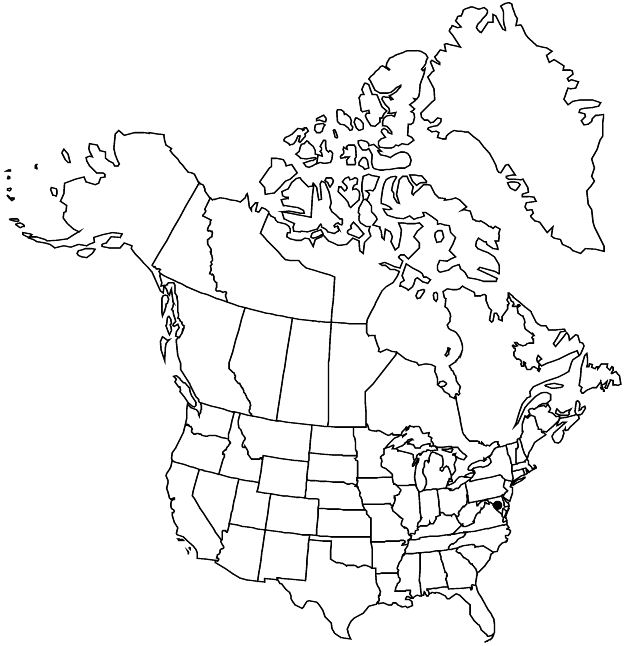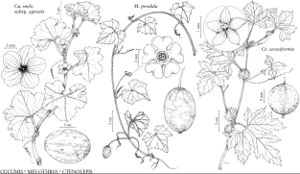Difference between revisions of "Ctenolepis cerasiformis"
in D. Oliver, Fl. Trop. Afr. 2: 558. 1871.
FNA>Volume Importer |
FNA>Volume Importer |
||
| Line 9: | Line 9: | ||
|special_status={{Treatment/ID/Special_status | |special_status={{Treatment/ID/Special_status | ||
|code=F | |code=F | ||
| − | |label= | + | |label=Illustrated |
}}{{Treatment/ID/Special_status | }}{{Treatment/ID/Special_status | ||
|code=I | |code=I | ||
| Line 17: | Line 17: | ||
|name=Zehneria cerasiformis | |name=Zehneria cerasiformis | ||
|authority=Stocks | |authority=Stocks | ||
| + | |rank=species | ||
|publication_title=Hooker’s J. Bot. Kew Gard. Misc. | |publication_title=Hooker’s J. Bot. Kew Gard. Misc. | ||
|publication_place=4: 149. 1852 | |publication_place=4: 149. 1852 | ||
| Line 23: | Line 24: | ||
|name=Blastania cerasiformis | |name=Blastania cerasiformis | ||
|authority=(Stocks) A. Meeuse | |authority=(Stocks) A. Meeuse | ||
| + | |rank=species | ||
}} {{Treatment/ID/Synonym | }} {{Treatment/ID/Synonym | ||
|name=B. fimbristipula | |name=B. fimbristipula | ||
|authority=Kotschy & Peyritsch | |authority=Kotschy & Peyritsch | ||
| + | |rank=species | ||
}} | }} | ||
|hierarchy=Cucurbitaceae;Ctenolepis;Ctenolepis cerasiformis | |hierarchy=Cucurbitaceae;Ctenolepis;Ctenolepis cerasiformis | ||
| Line 50: | Line 53: | ||
-->{{#Taxon: | -->{{#Taxon: | ||
name=Ctenolepis cerasiformis | name=Ctenolepis cerasiformis | ||
| − | |||
|authority=(Stocks) Hooker f. in D. Oliver | |authority=(Stocks) Hooker f. in D. Oliver | ||
|rank=species | |rank=species | ||
| Line 65: | Line 67: | ||
|publication title=in D. Oliver, Fl. Trop. Afr. | |publication title=in D. Oliver, Fl. Trop. Afr. | ||
|publication year=1871 | |publication year=1871 | ||
| − | |special status= | + | |special status=Illustrated;Introduced |
| − | |source xml=https://jpend@bitbucket.org/aafc-mbb/fna-data-curation.git/src/ | + | |source xml=https://jpend@bitbucket.org/aafc-mbb/fna-data-curation.git/src/f50eec43f223ca0e34566be0b046453a0960e173/coarse_grained_fna_xml/V6/V6_65.xml |
|genus=Ctenolepis | |genus=Ctenolepis | ||
|species=Ctenolepis cerasiformis | |species=Ctenolepis cerasiformis | ||
Revision as of 22:06, 16 December 2019
Stems glabrous or subscabrous except sparsely hairy at nodes. Leaves: petiole 1–5 cm; stipuliform bracts, suborbiculate, 6–15(–20) mm, basally clasping stem, margins stiffly spreading-ciliate; blade broadly ovate to broadly ovate-cordate or suborbiculate, usually distinctly and deeply lobed, 3.5–9 cm, lobes obovate to ovate-oblong or elliptic, base cuneate-attenuate, surfaces scabrous at least on veins and margins. Floral bracts 1–3 mm. Peduncles 2–7 mm (pistillate), 20–40 mm (staminate). Flowers: hypanthium 0.5–1 mm; sepals reflexed, 0.5–1 mm. Fruits 1.3–1.5 cm, peduncles 2.5–7 mm. Seeds whitish, 7.5–11 mm.
Phenology: Flowering Aug–Sep.
Habitat: Chrome ore piles
Elevation: 0 m
Distribution

Md., Africa, introduced also in Asia.
Discussion
Ctenolepis cerasiformis was collected by C. F. Reed in 1958 at temporary unloading sites for chrome ore from cargo ships in the Port of Baltimore. The plants are distinctive in their annual duration, deeply lobed leaves, foliaceous stipuliform bracts with stiffly ciliate margins, tiny white flowers, and small, few-seeded, smooth, red, berrylike fruits on relatively short peduncles.
Selected References
None.
